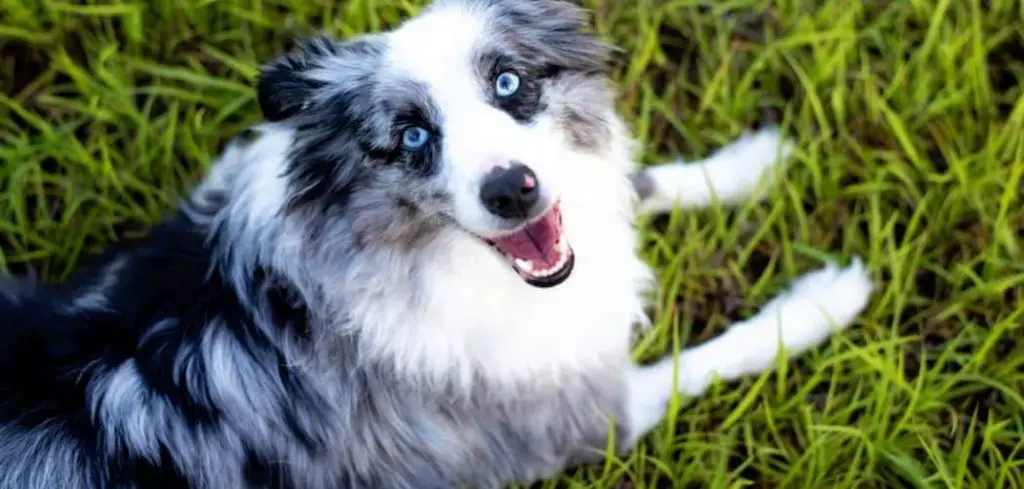It can be confusing and even uncomfortable when a dog won’t stop licking your feet. While it may seem harmless or quirky, excessive licking can signal underlying health, behavioral, or emotional issues that owners should not ignore.
We outline the common reasons why your dog is excessively licking your feet, what you can do at home, and when to seek veterinary help.
Table of Contents
Dog Excessively Licking My Feet — Why It Happens
When your dog excessively licks your feet, this is usually tied to behavioral habits, sensory attraction, stress relief, or underlying health conditions. Some dogs are drawn to the salty taste of sweat, while others lick feet as a way of showing affection or submission.
In certain cases, it can signal anxiety, boredom, or even compulsive behavior. Health-related causes, such as allergies or nausea, may also lead a dog to lick obsessively.

Dog Excessively Licking My Feet: Common Causes
Taste and Sensory Attraction
Dogs often lick feet because they are attracted to the salty taste of human skin. Sweat, lotions, or even soap residue can draw them in.
Owners may notice the licking happens more after exercise, a shower, or when feet are warm and slightly sweaty.
While harmless at first, constant licking can become habitual. In some cases, the behavior becomes obsessive and difficult to redirect without training or intervention.
Read more: Dog Excessively Licking It’s Feet (Is it allergies or something else?)
Affection and Bonding
Licking is one of the main ways dogs show affection. A dog that licks your feet may simply be expressing love and bonding.
This is especially common in puppies or breeds that use licking as a natural social behavior.
Though sweet, excessive licking may be a sign that the dog is overly dependent on their owner for comfort. Over time, it can develop into a compulsive behavior that requires guidance to manage.
Anxiety or Stress Relief
Dogs often self-soothe through licking, and feet provide a consistent and accessible target. Anxiety from loud noises, separation, or changes in routine may push a dog to lick more than usual.
Owners may also see other signs of stress, such as pacing, whining, or destructive behavior. If licking feet is your dog’s go-to coping mechanism, it may indicate deeper anxiety issues that need addressing.
Boredom and Lack of Stimulation
When dogs lack exercise, mental stimulation, or enrichment, they may resort to licking as an outlet. Feet become a convenient target since they are always nearby.
This cause is especially likely if the dog is home alone for long stretches or does not receive enough playtime. Without redirection, licking can become an ingrained habit tied to boredom.
Allergies and Skin Sensitivities
Sometimes excessive licking of feet is linked to a medical issue rather than behavior. Environmental or food allergies can cause itching, and dogs may transfer their urge to lick themselves onto their owner.
If a dog is both licking human feet and obsessively chewing or licking its own paws, allergies may be a factor. This requires veterinary evaluation to manage properly.
Nausea or Gastrointestinal Upset
Dogs experiencing nausea sometimes lick excessively as a way of soothing their stomach. Owners may notice that a dog who licks feet a lot also licks floors, walls, or furniture.
This type of licking tends to appear suddenly and may be accompanied by drooling, reduced appetite, or vomiting. Veterinary attention is important in these cases.
What to Do If Your Dog Is Excessively Licking Your Feet
If your dog constantly licks your feet, start by observing when it happens most. If it’s after exercise, showering, or mealtimes, sensory attraction may be the cause. Washing your feet more often or wearing socks around the house can help reduce the temptation.
Provide alternatives, such as chew toys, lick mats, or puzzle feeders, to redirect the behavior. Dogs that lick out of boredom benefit from more exercise, playtime, and enrichment activities.
If anxiety seems to be the trigger, calming routines, structured schedules, and positive reinforcement training can help. Some dogs may benefit from calming supplements or professional training.
When health issues are suspected, especially if licking is paired with signs of nausea, skin irritation, or paw chewing, a veterinary checkup is the safest step.
When to Call or Visit Your Vet
If your dog’s licking becomes obsessive and they ignore redirection, veterinary advice is important. Compulsive licking can worsen over time and affect both your comfort and the dog’s well-being.
Seek veterinary help if you notice signs of illness alongside licking, such as vomiting, drooling, diarrhea, lethargy, or changes in appetite. These may point to gastrointestinal problems or other health concerns.
Also, call your vet if your dog licks both your feet and their own paws excessively, as this may suggest allergies or skin sensitivities that require treatment.
Finally, if licking is tied to anxiety that disrupts your dog’s daily life, a vet or professional trainer can guide you through behavior modification and calming strategies.
Read more: Dog Excessively Licking Privates (When should you worry?)
Key Takeaway
Excessive licking of feet in dogs can stem from affection, stress, boredom, or underlying health conditions. While some causes are harmless, others require attention to prevent compulsive behaviors or identify medical problems.
Owners can try redirection, enrichment, and increased bonding activities at home, but if the licking is sudden, obsessive, or paired with illness, a vet visit is recommended. With patience and guidance, most dogs can be taught healthier ways to express affection and cope with stress.
